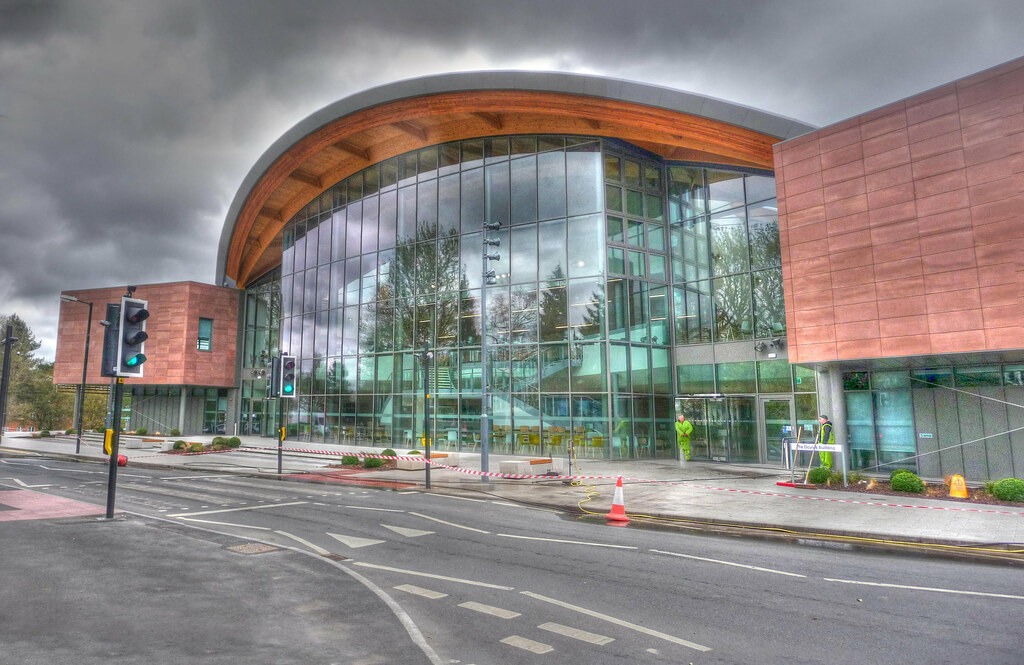The Unconsidered: Warwick’s unseen accessibility crisis
What’s the first thing that comes to your mind when you think about accessibility? You’re probably conjuring images of wheelchair ramps, automatic doors, Braille on signage, and lots of physical changes to buildings. You’re likely framing it in terms of disabled people, and it’s certainly true that there is a lot for the university, Students’ Union (SU) and other bodies to do to make this campus truly accessible. But what if I told you that there’s even more dimensions to accessibility, and some of them are incredibly subtle, yet potentially devastating for students, staff, and other members of the Warwick community?
Before I get too far into this, it’s worth offering my acknowledgement and sincere thanks to the members of our community who are doing the work to challenge these things. Whether they’re academic staff, dedicating themselves to improving quality-of-life as well as teaching and researching, student activists and societies who juggle their degrees with interviews and frantic research dives into long-forgotten archives, or the determined and passionate teams who make accessibility their mission on campus; if it weren’t for them, we’d be even further behind than where we are now, but there is still such a long way to go.
There’s a complete lack of accessibility signage in most buildings
Let’s take some examples. Our flagship Faculty of Arts Building, winner of multiple awards for architectural design and innovation from the Royal Institute of British Architects, has countless accessibility issues. Most jarringly, the automatic doors on the front of the building (the ones that purport to be ‘accessible’) tend to seal shut the moment the wind rises above a gentle bluster since the stunningly beautiful internal layout acts like a vacuum seal. Autistic staff and students have highlighted the cavernous echo and noise channels that cause overstimulation, whilst the ‘welfare room’ is frequently compared to a prison cell or Harry Potter’s cupboard, with no natural light entering the room.
So, if that’s what the newest building on campus has to offer, you must be thinking that there’s not much hope for the older ones. You’d be right. The Oculus has two rooms where a wheelchair user wishing to use an accessible bathroom must exit the building, travel all the way around the building, and then re-enter at the front (relying on at least one of the accessible doors functioning of course). The SU Headquarters’ Liberation Space is (ironically) behind an incredibly narrow door. There’s a complete lack of accessible signage in most buildings, making them near–impossible to navigate independently or with any dignity whatsoever. I could go on, but I’ve got a word limit.
Access to the pastoral care system was just a promise, with the university choosing student numbers and profit over providing actual substantive care
Beyond physical issues with buildings and accessibility, have you ever thought about other accessibility issues with Warwick systems? The fact that seminar sign-ups operate on a first-come, first-served basis in my department means that they’re inaccessible for students with caring responsibilities, those who are working, or indeed anyone who doesn’t happen to have a spare 20 minutes when the signups open, provided of course that the websites don’t crash. It would be remiss of me to also not mention the story broken by RAW last year surrounding personal tutoring issues. The alleged choices made to break the guidelines on numbers of personal tutees per Tutor in certain departments (which have apparently now been readdressed, at least in my own department) disproportionately impacted disabled students, who were incredibly angered by the contents of the report. For many of us, it seemed to be proof that access to the pastoral care system was just a promise, with the university choosing student numbers and profit over providing actual substantive care. These issues have now apparently been resolved, but I urge everyone to keep an eye on the number of people assigned to their Personal Tutor to ensure that all departments are now compliant.
I also encourage anyone who wants to discuss or share a story related to inaccessible life at Warwick to get in touch with Disability Services, the SU’s Advice Centre, or one of the student societies focusing on disability at Warwick: Warwick Enable and Autism at Warwick. The SU also has a dedicated Disabled Students’ Officer, who can signpost and support on issues. Finally, though I don’t have an official title within the university or SU structures, I can always do my best to help.
I leave you with this. If you’re thinking about disability, shaping disability policy for a society or department, or just trying to do the right thing, please learn from disabled people and elevate and amplify our voices. The slogan of the disability rights movement is “Nothing about us without us” for a reason, so let’s keep that in mind!
When contacted for comment, this is the University of Warwick’s response:
A University of Warwick spokesperson said: “Accessibility and inclusion are top priorities for Warwick, and we will continue to look at the different ways we can make campus accessible to everyone. Assistance available includes bespoke equipment or services, as well as assistive software and physical access support. Those who wish to discuss their own individual needs can book private appointments by contacting disability@warwick.ac.uk. We will continue doing all we can to improve accessibility across campus whenever possible”.

Comments